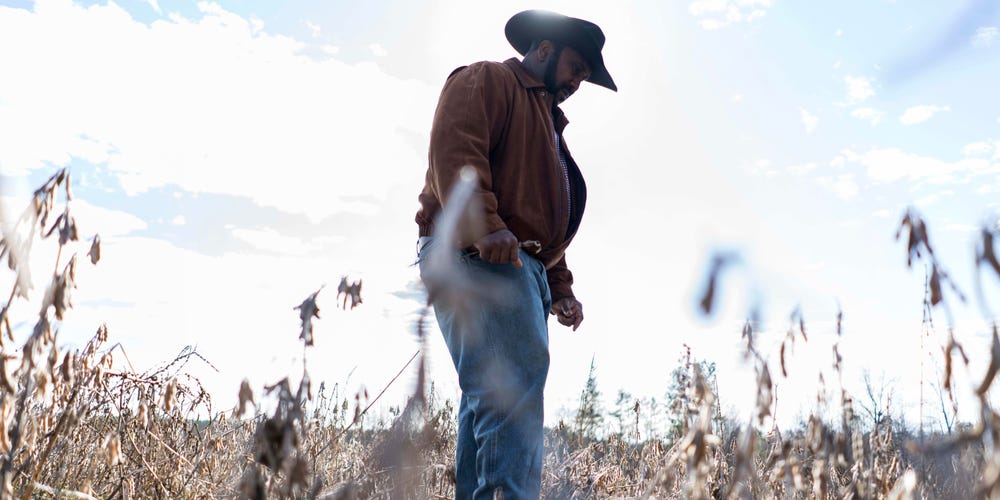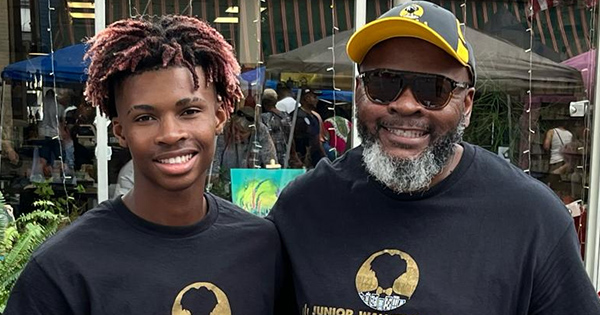White farmers block much-needed federal relief program for Black farmers
In a historical step to redress racism, the USDA was poised to issue $4 billion in debt relief to farmers of color. White farmers and banks pushed back and Black farmers are suffering as a result.
This month, in a historic step to redress racism, the United States Department of Agriculture planned to begin issuing $4 billion in debt relief to minority farmers around the country. The move follows a long and ugly record of discrimination, including by the USDA itself.
Depressingly but not surprisingly, a group of white farmers has sued the USDA over the relief program, which was passed as part of the American Rescue Plan back in March. These longtime beneficiaries of systemic racism now claim they are victims of reverse discrimination. On June 10, a US District court issued a temporary restraining order on the USDA’s plan while it decides if the agency’s program discriminates against white farmers. A judge in Florida also ruled against the program on June 24, throwing the future of the aid further into doubt.
The three trade groups — the American Bankers Association, the Independent Community Bankers of America, and the National Rural Lenders Association — collectively represent a huge swath of American financial institutions, including the very ones that spent much of the 20th century denying home and business loans to people of color.
For years, financial institutions have used discriminatory practices to withhold credit from non-White farmers. The USDA — which plays a central role in farming through loans, grants, insurance, technical help, and other services — has also failed to help Black farms equally, as Vilsack recently acknowledged. As a result, they struggled and shrank as White-owned farms grew. Consider that, in 1920, 14% of the nation’s farmers were black. By 2017, fewer than 2% were.
There have been efforts to remedy these injustices. In 1999, Black farmers won a major civil rights class action lawsuit, Pigford v. Glickman, which alleged systemic race-based discrimination by the USDA.
For instance, some 60,000 otherwise legitimate claims were rejected for being filed late. And one rule demanded that claimants come up with “specifically identified, similarly situated white farmers” who had not faced discrimination — legal research that could take a whole law firm months to produce.
Even today, agricultural policies disadvantage farmers of color. Take the $8.5 billion Trump-era farm subsidy known as the Market Facilitation Program. Though about 10% of US farmers are people of color, more than 99.4% of those funds went to non-Hispanic white farmers.
Still, the battle to stop aid for non-White farmers continues. Hoping to stir controversy, some have characterized the USDA debt relief program as a form of reparations for slavery — even though the program is intended for “socially disadvantaged farmers” as a group. About 4% of American farmers are Hispanic, 3% Native American, and 1% Asian or Pacific Islander.
In the banking groups’ letter to Vilsack, they warned that, should debt relief move forward as planned, “the likely result will be less access to credit for those seeking USDA guaranteed loans in the future, including [socially disadvantaged] farmers/ranchers.”
People of privilege pay off loans early every day without their banks complaining to the government and threatening to withhold future loans. But they aren’t the Black farmers who financial institutions had hoped to keep in debt for the rest of their days.
If black farmers and other farmers of color are to ever overcome the financial sector’s entrenched racism, they’ll need to forge their own financial institutions — specifically, member-owned financial cooperatives. These organizations offer the same services as traditional banks, but unlike banks, are deeply invested in the financial well-being of their member-owners.
The Administration’s debt relief program is a welcome move. But the ultimate solution for marginalized farmers is to take the levers of finance into their own hands.
(This article first appeared in Business Insider and was written by Cornelius Blanding, Executive Director of the Federation of Southern Cooperatives/Land Assistance Fund.)



